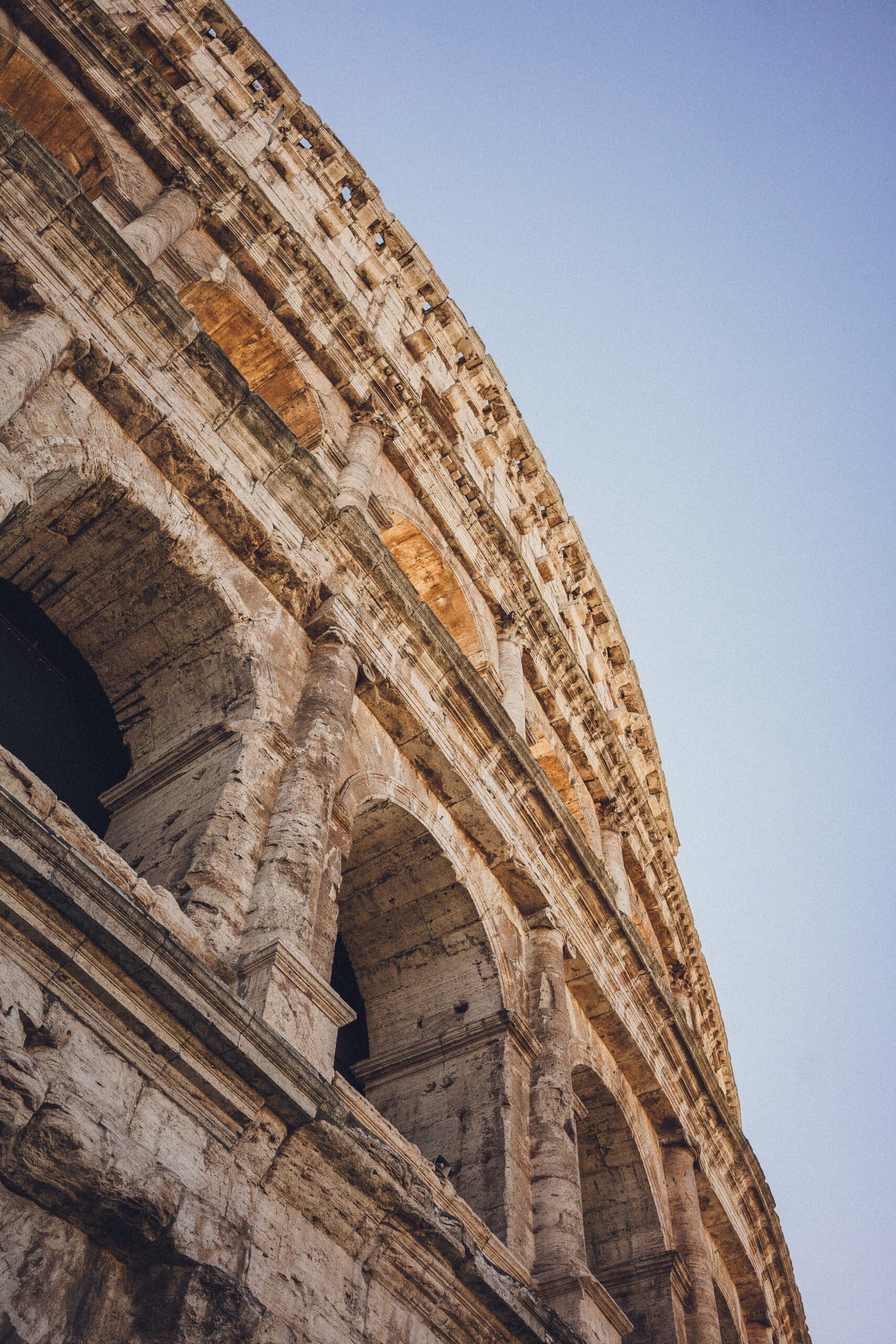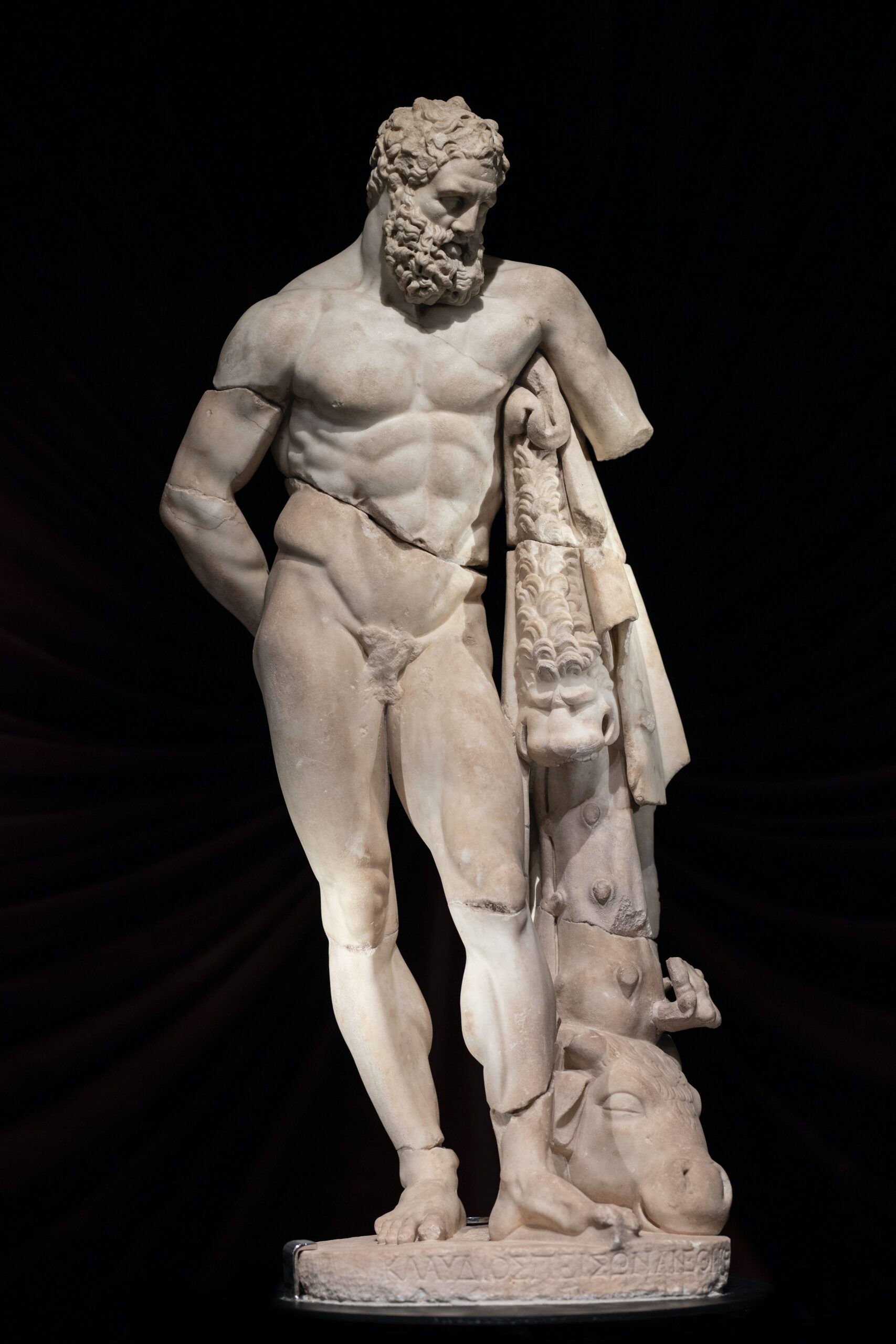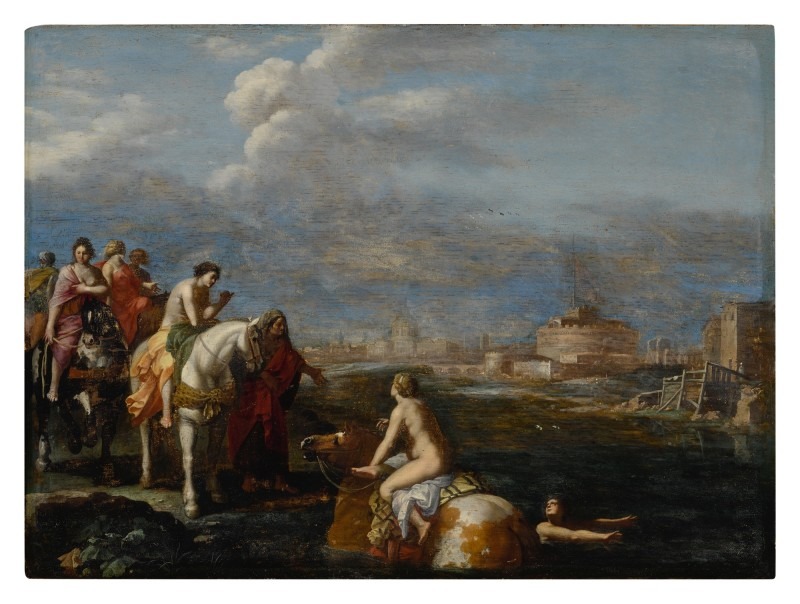Aside from their great architectures and astounding sights, Rome is also known for its mystical stories about their origination and their legendary Gods which they represented through visual arts and literature. From heroism and divine law to supernatural elements, Roman mythology has them all. Here’s an article about the famous, amazing, and unusual Roman mythology stories.
1. The Myth of Janus
Janus is the Roman god of time, gates, beginnings, and transitions. He is often depicted as having one head with two faces because it is said that he looks to the future and to the past. Janus always presiding over the beginning and ending of conflict, war, and peace. He has an important role in ancient Roman mythology because he is the one who is responsible for the changes that occur in time. And when Romulus and his men kidnapped the Sabine women, Janus stopped them by causing a volcanic hot spring to erupt which resulted to the kidnappers being buried alive in hot, deadly ash.
2. The Myth of Aeneas
Aeneas was a Trojan hero who was the son of Anchises and Venus. And his father was a first cousin of King Priam of Troy. And in Virgil’s Aeneid, he explained that Aeneas was one of the few Trojans who was not killed or enslaved when Troy fell. Because Aeneas was commanded by the gods to flee and after that, he gathered a group which he called Aeneads who traveled with him to Italy and became progenitors of the Romans. The Aeneads was composed of Aeana’s father Anchises, his trumpeter Misenus, and his friends Achates, Sergestus, and Acmon. They carried with them the statues of the Trojan Gods and they planted them in Italy.
After six years of finding a new home, the Aeneads finally landed at Carthage where Aeneas had a year-long affair with Dido, a Carthaginian queen. The two then eventually got engaged but Aeneas mother, Venus, reminded him of his true journey and purpose that’s why he decided to leave Dido secretly. And when Dido discovered that Aeneas fled, she said a curse that forever pit Carthage against Rome and she decided to commit suicide afterward by stabbing herself with the sword that she gave Aeneas when they first met.
3. 
Hercules was the Roman hero and god that is equivalent to the Greek hero Heracles. He is famous for his incredible strength and several adventures. The Romans adapted the Hercules iconography from the Greeks as a piece of art and literature. Hercules later became popular in Western art, literature, and pop culture. He is widely known as Hercules rather than Heracles. And he has a handful of myths that are about him and the most popular is
the 12 Labors of Hercules and these are:
- Hercules and Hydra
- Hercules and the Nemean Lion
- Hercules and the Erymanthian Boar
- Hercules and the Stymphalian Birds
- Hercules and the Cretan Bull
- Hercules and Cerberus
- Hercules and the Cattle of Geryon
- Hercules and the Augean stables
- Hercules and Mares of Diomedes
- Hercules and the Belt of Hippolyta
- Hercules and Ceryneian Hind
- Hercules and the Apples of Hesperides
All of these myths about Hercules are about him being a symbol of infinite power because he is a demi-god.
4. Romulus and Remus
The story of Romulus and Remus tells about how the city of Rome and the Roman kingdom was founded. Romulus and Remus were the children of Rhea Silvia and the god Mars. Silvia conceived them when Mars visited her in a sacred grove dedicated to him.
King Amulius, saw the twins as a threat to his rule that is why he ordered them to be abandoned on the bank of the river Tiber to die. But the twins were saved by the father of the river, Tiberinus and they survived with the care of others. But eventually they were adopted by a shepherd named Faustulus and they both grew up tending flocks and not knowing who they really are. But their innate leadership skills attracted supporters from the community.
When they became young adults the two were involved in a dispute between the supporters of Amulius and Numitor and it resulted to Remus being taken as a prisoner and he was brought to Alba Longa. On the other hand, Romulus finds a way to free Remus. And during this time, the twins learned about who they truly are and they joined forces with their grandfather to help him restore the throne. Amulius got defeated and Numitor was able to restore the throne became the king of Alba while the twins set out to build their own city.
The twins went back to the seven hills where they had an argument about where to build the city. Romulus wanted to build it in the Palatine Hill but Remus wanted it to be in Aventine Hill. When they could not settle their argument, they asked the gods for help through competition of augury. And it just resulted in another dispute between the two and at the end, Remus was killed. Romulus then carried on with his plans to find the city of Rome.
5. The Myth of Pluto and the River Styx
Pluto is the Roman god of Death and according to the Roman myth, anyone who dies will have to travel down to the underworld. The dead had to cross the river Styx and to be able to cross the river the person who died will have to be buried with a coin in his mouth so that he could pay the ferrymen Charon for the ride across the river. The river Styx is a bad omen because even the Gods cannot escape its powers. If they come in contact with it they would lose their voice for nine years.
6. Jupiter and the Bee
This myth is about a bee who was getting tired of having people and animal steal his honey. And he wished and prayed to the gods that he would have some kind of weapon to fight away the thieves but the gods did not grant his request. One fine day, he decided to personally ask Jupiter for help. The bee flew up to the heavens and brought Jupiter a gift of honey. Jupiter was pleased and he asked if what would the bee wanted in return. The bee wished for a sting so that he could kill any mortal who takes his honey. Jupiter was not happy with the bee’s wish but he still granted what the bee wanted but Jupiter said “ I will give every bee a stinger, but there must be a payment. For every bee who uses the sting, they must pay for it with their life. That way every bee will have a choice to die, protect, or share”.
7. Myth about Cloelia
A peace treaty was signed in 508 BC which ended the war between Rome and Clusium. And part of this treaty was the Roman hostages will be taken away by Lars Porsena. One of the hostages was Cloelia who managed to escape the Clusian camp and lead away from a group of Roman virgins. She ran away on a horse and swam across the river of Tiber. Lars Porsena demanded her return, and when she came back, Porsena became very impressed by her courage and strength that he allowed her to free half of the hostages. Cloelia selected young Roman men to be free so that they could continue the war.
8. Apollo and Cassandra
Cassandra was one of the most beautiful daughters of King Priam and Apollo quickly fell in love with her. Apollo then promised Cassandra that he would give her the power of prophecy in exchange for marriage. Cassandra agreed to Apollo’s condition that’s why he gave her the gift but upon receiving what she wanted, she refused to marry Apollo. When Apollo heard Cassandra’s decision, he became very angry and cursed her that no one will ever believe any of her prophecies ever again.
People began thinking that Cassandra was a liar and a crazy woman. And no one believed her warnings to the Trojans against the Greeks that’s why Troy was destroyed.
9. Jupiter and Lo
Lo was one of the mortal lovers of Jupiter. When Jupiter fell in love with her, he disguised himself as a dark cloud so that his wife, Juno, can never see him lurking around Lo. But Juno was a smart woman because she noticed the dark cloud and immediately thought that it was her husband. When Juno arrived on Earth, Jupiter quickly turned Lo into a white cow to protect her from his wife’s anger. But Juno was able to get hold of the cow which she tied to a rock and ordered Argus, a man with a hundred eyes that hardly ever close, to guard her.
To set her free, Jupiter ordered his son Mercury to talk with Argus and tell him a lot of stories so that he will fall asleep. When Mercury succeeded in his task, he then freed Lo and killed Argus. But Juno found out what Mercury did and she became furious. She then sent a venomous gadfly to sting Lo for a lifetime. The inhuman imprisonment only stopped when Jupiter promised Juno that he would never chase Lo again.
10. Neptune and Minerva
During ancient times, each town has a god that looked after them. Neptune, the Lord of the Sea, was always on the lookout for towns that had not been claimed yet by a god and he wanted as many towns as possible to call his own because he loved the attention and he loved having the towns build temples to worship him. And even if towns could only have one god to watch over them, the gods can watch over as many towns as they could.
One day, Minerva and Neptune both claimed a coastal village at the same time. The people loved the idea of having two gods watching over them but a town could only have one guardian and they don’t want to choose between either of them because they don’t want to anger either god. That’s why Minerva suggested that she and Neptune should give the town a gift and the people will have to decide which gift was better. Neptune gladly agreed with the idea.
For his gift, Neptune tapped the side of the mountain and water began to flow out in a beautiful stream. The people were happy because the water was so important. But when they tasted the water, they had to spit it out because it was salt water.
And when it was Minerva’s turn, she waved her hand and an olive tree began to grow. The people tasted the olives and smiles broke out because the olives were delicious. It was obvious that the people wanted Minerva to be their guardian but they were worried that they might anger the lord of the sea. But Neptune just threw back his head, he accepted his defeat and gave the village to Minerva.



